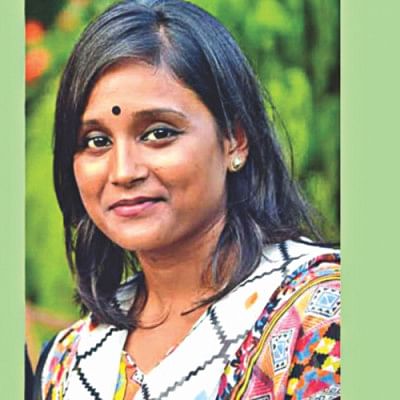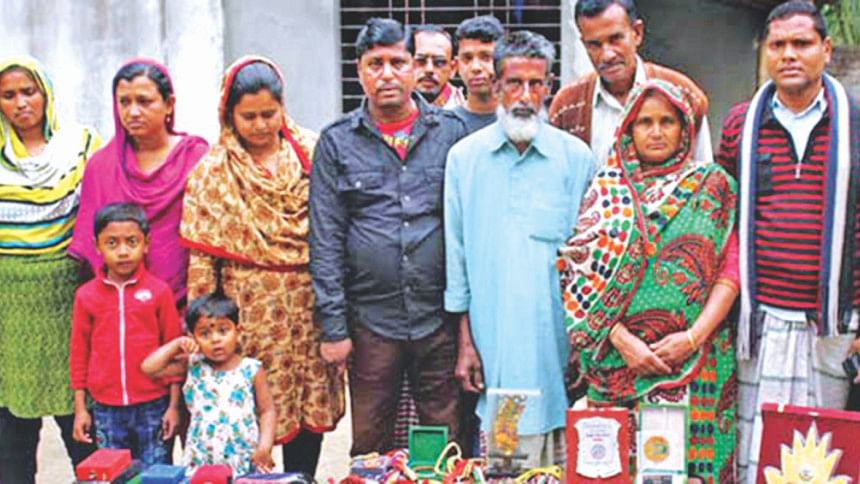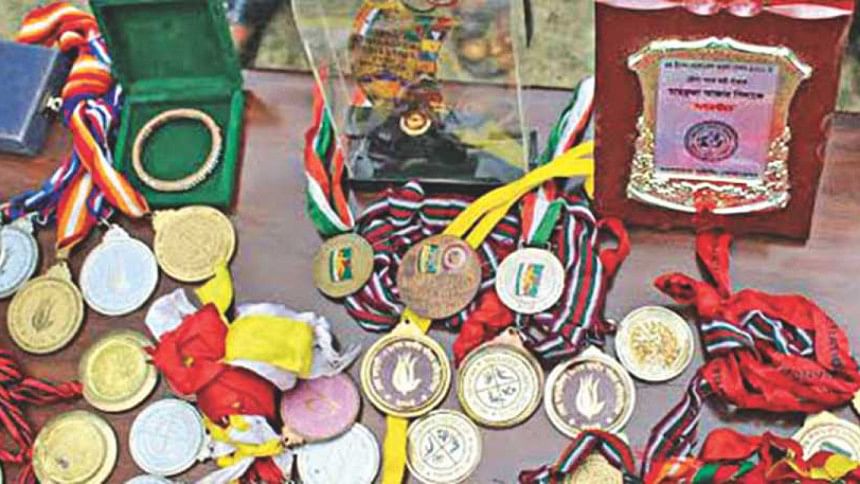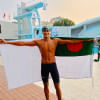Surviving, not thriving

Mahfuza Khatun Shila has been carrying the torch for Bangladesh's athletics for some time. Currently the swimmer is in India competing in the 2016 SA Games, where she has already twice taken her place at the top of the podium by winning gold medals in the 100-metre and 50-metre breaststroke, breaking the SA Games record in the latter. Amid such heady triumphs, information filtered through to Shila that the sports community in Bangladesh was abuzz with the news that she had sold off two of her gold medals to fund treatment for her ailing father.
The information caught her by surprise and, when asked by The Daily Star reporter covering the SA Games in Guwahati, she immediately denied it. “I have not sold my gold medals. We are actually in a better state financially. I don't know what is going on. I can't say anything about any report until I talk to my parents.”
She admitted however that her family was in some strife not so long ago in 2008, when she was a student of the Bangladesh Krira Shikkha Protishthan (BKSP). Her father fell sick and it almost brought a stop to her education, but help from village residents had averted that eventuality. Selling her medals, however, never occurred to her.
“When I was winning a lot of medals my mother once jokingly said 'what will you do with all these medals, why not sell them?', but I never thought of selling my medals,” Shila said.
“We have our own farm land now and we also work on others' land, so we are doing better,” said Shila. She also made a house for her father in their homestead in Abhaynagar in Jessore with her income from winning at swimming events.

Having completed her graduation and post-graduation in Communication and Journalism from Chittagong University, she held a temporary job as part of the Bangladesh Navy's quota for athletes, where she is soon to become a permanent employee. The Bangladesh Olympic Association (BOA) has promised Tk 5 lakh for every gold medal won during the SA Games, while the Bangladesh Amateur Athletic Federation (BAAF) announced a Tk 3 lakh reward.
Despite this picture of relative financial stability, Shila was of the opinion that the Tk 5 lakh reward was not sufficient in the current economic climate, and raised concerns about the result-oriented nature. “Sri Lanka and India pay their athletes more. Also, it is not often that someone from Bangladesh wins gold at the SA Games, so the rewards should be more. And what of those who do not win gold?
“Apart from the cash award it will be good if corporate houses sponsor the gold-medal winner like they sponsor shooters,” Shila opined.

Shila's insistence on financial security probably has more to do with her and her family being better off than they were before, judging by her discontent about the current state of affairs. The call for sponsors has as much to do with immediate financial benefits as it does with the longer term effects of promoting a lesser known sport, which is increased popularity and therefore better rewards. Yesterday's news brings into stark relief the plight of a majority of Bangladesh's athletes.
That an athlete of Shila's stature, undoubtedly an elite in the country's sports landscape, has to work on farmlands for subsistence tells its own story.

 For all latest news, follow The Daily Star's Google News channel.
For all latest news, follow The Daily Star's Google News channel. 








Comments